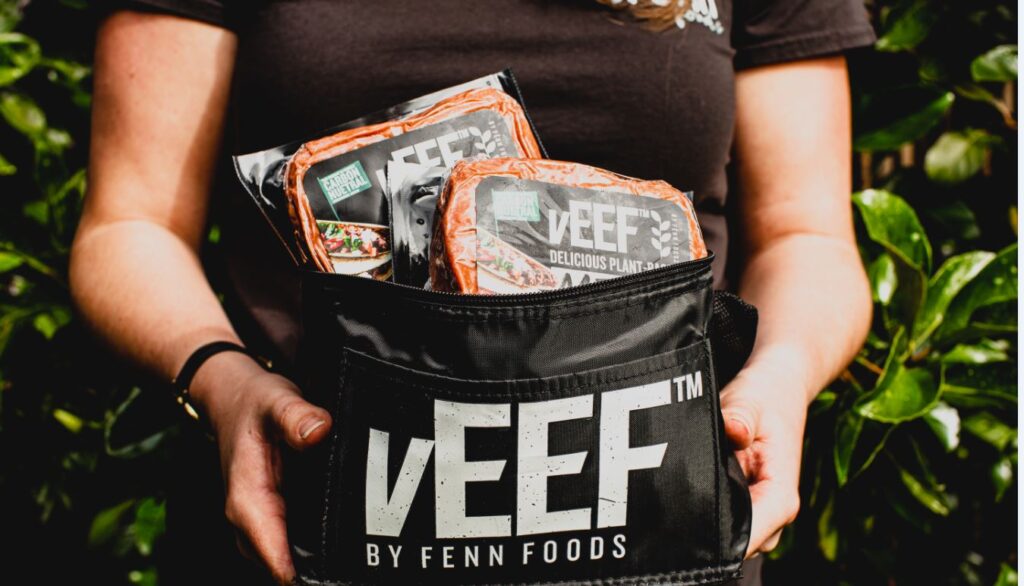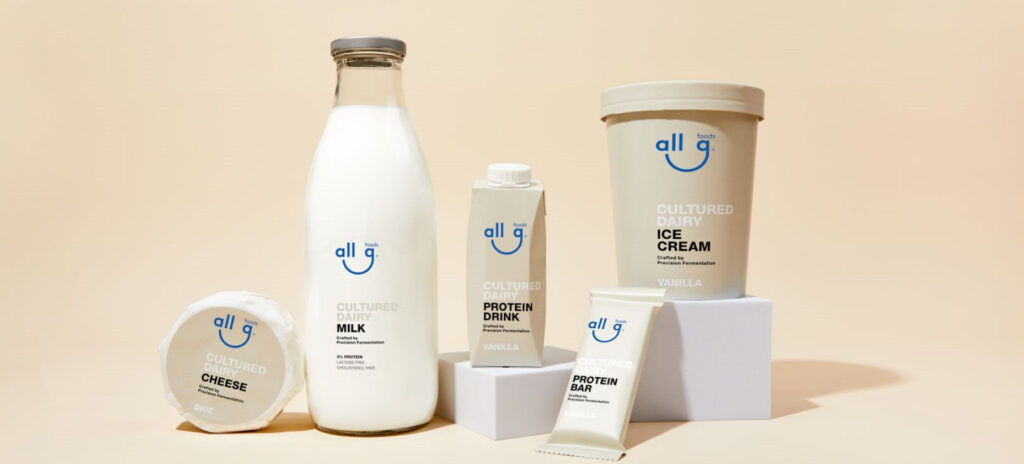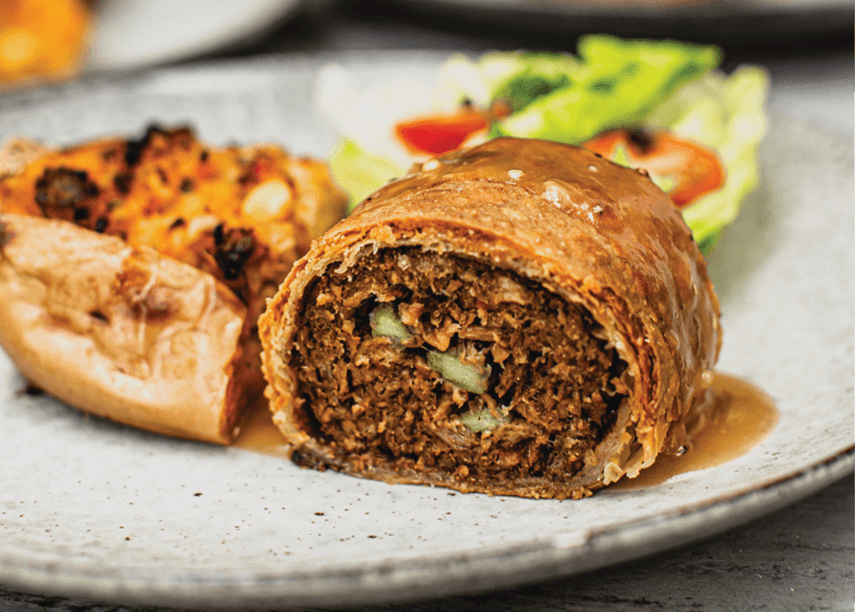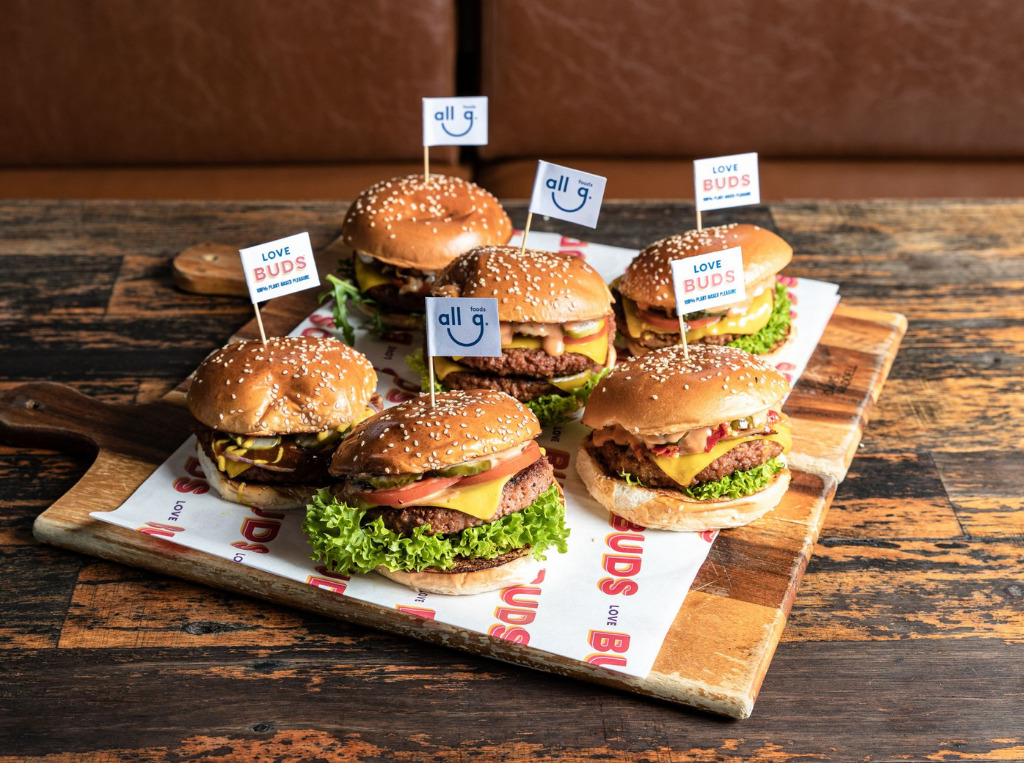The Aussie Plant-Based Co: All G Foods Spins Off Vegan Meat Brand to Focus on Precision Fermentation Dairy Proteins
5 Mins Read
As Australians eat less meat, vegan companies All G Foods’ Love Buds and Fenn Foods’ vEEF have announced a strategic merger to form The Aussie Plant-Based Co. The two brands will see access expanded to 6,000 distribution points, while All G Foods will dig deep into its mission to reach price parity for precision fermentation dairy.
All G Foods, a portfolio company of VC firm and cellular agriculture investor Agronomics (which owns 8% of the business), will spin out its Love Buds brand to form The Aussie Plant-Based Co. with Fenn’s vEEF. As a result, All G Foods will own 49% of the merged company.
Love Buds makes plant-based mince, burgers, sausages, chicken nuggets and schnitzels, while vEEF makes beef and chicken burgers and pieces, as well as bacon bits. Both companies have products in retail and foodservice locations, with the merger combing the footprint to 6,000 stores across Australia. The move will also combine production at vEEF’s Sunshine Coast manufacturing facility, helping the brands expand into Asia and the Middle East.
Fenn, founded by Aussie chef Alejandro Cancino in 2015, claims it’s the country’s first company to introduce a certified carbon-neutral mince alternative under the vEEF brand. All G Foods, meanwhile, had multiple focuses: while Love Buds produced plant-based meat, its biotech arm focused on producing precision fermentation dairy proteins.

All G Foods doubles down on precision fermentation
The merger will allow All G Foods, which raised $25M in a Series A round last year to bring total funding to $41M, to focus solely on its precision fermentation research and development. The company is initially looking to create animal-free bioidentical lactoferrin, which is a component of whey protein. It has teamed up with Australia’s Food and Beverage Accelerator to speed up development as well as create dairy products that consumers are looking for.
“Since inception, we have always had one foot in the ‘deep-tech’ segment of precision fermentation and the other in the consumer-facing ‘plant-based meat’ business,” explained All G Foods founder and CEO Jan Pacas, who is chairman of the newly merged company. “This transaction represents a pivotal strategic move to allow the two different businesses to concentrate exclusively on their respective and unique needs.”
To advance its mission, the company invested in a 24/7 BioFoundry located in Sydney, which has an AI-driven ecosystem. All G Foods is working on lactoferrin first due to its prized antiviral, antibacterial, anti-inflammatory, prebiotic and probiotic attributes, according to Pacas.

While the company hasn’t conducted a life-cycle assessment to determine the exact climate benefits of its animal-free protein, De Novo Foodlabs, an Anglo-South African startup also making precision-fermented lactoferrin, has published an environmental impact report for its protein. It was potentially found to have a 99.9% lower GHG footprint and land use footprint, and an equal decrease in water use compared to conventional lactoferrin.
All G Foods isn’t just stopping there – it plans to make precision-fermented casein proteins too, which represent 80% of the total protein content found in dairy and are responsible for the key functional attributes these foods are associated with. The company has previously earmarked plans to launch in Singapore by the end of 2024 while looking at other APAC markets, the Middle East, and the US as well.
Eden Brew is another Aussie precision fermentation dairy startup, which is focusing on animal-free casein micelle, and earlier this month, it closed a $24.4M Series A round. Other developments in the sector down under include Cauldron’s $10.5M raise earlier this year to build APAC’s largest network of microbial fermentation facilities, and Aussie-American startup Change Foods’ award of two government grants last year to develop manufacturing plants and scale up its animal-free dairy production.
A key obstacle for startups like All G Foods is regulatory approval. In Australia, cellular agriculture products are classed as novel foods and require pre-market authorisation before being cleared for sale. Currently, no company has filed for approval in the country.
Catering to a meat-reducing Australia
Speaking about the merger, Pacas said: “I believe our team’s strong chemistry and dedication to success will help The Aussie Plant-Based Co to succeed [in] reaching new and old customers and consumers alike with a variety of taste-first plant-based meat products.”

He told Food & Drink Business: “There are significant synergies between the two companies we can leverage to accelerate growth for both brands. VEEF has superior manufacturing processing while we have stronger R&D and vEEF is in the retail market while Love Buds is strong in foodservice.”
Cancino, who is the CEO of the new brand, added: “This collaboration is a testament to our shared commitment to creating a sustainable, healthier and tastier future for Australians. By combining our strengths, we can accelerate the adoption of plant-based alternatives and contribute to a greener planet and more ethical sources of protein.”
It comes shortly after a study by Queensland’s Griffith University found that nearly a third (32.2%) of Australians have reduced their meat consumption over the last year. Crucially, 71.3% said they either eat completely meatless diets, mostly vegan or have some plant-based dishes in an overall omnivorous diet. And 45.6% said they eat plant-based analogues to animal foods sometimes.
It highlights an opportunity for brands like The Aussie Plant-Based Co, which should zero in on taste and health credentials. A YouGov Australia poll of 1,093 Aussies conducted last week found that 19% identify as flexitarians, and 6% as vegan/vegetarian – across the board, taste was the number one factor prioritised by consumers when explaining their food choices, with health coming in second for flexitarians and price for the rest of the groups.
Can The Aussie Plant-Based Co capitalise on these trends? We'll find out soon enough.




